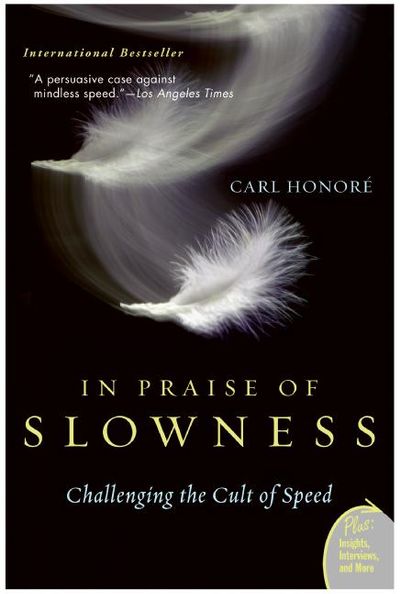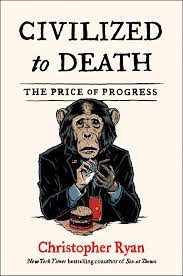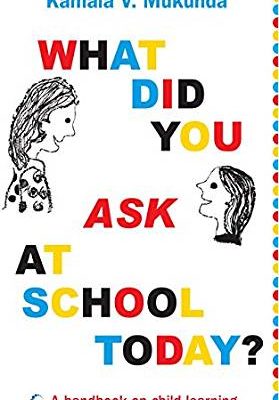We are living in a world obsessed with speed. One of the most frequently used words in our daily life is hurry up. The reality is that now we have no option to go slow on anything. Life has become a fast enterprise. One of the main factors while buying various equipments is how fast it does the job. In the office, slow workers attract only contempt. Everything needs to be delivered quickly. It’s a frantic attempt to fill life with so many things and the irony is that after saving time with all modern gadgets, we are still starved for quality time for ourselves. In a path-breaking work on the evolution of emotions and personal relationships titled “ An intimate history of humanity, Theodor Zeldin asks,
How can people believe themselves to be free if they have no space in their lives? Where nothing is expected of them and if they are always late or in a hurry….
In Lewis Mumford’s book, Technics, and Civilization, while examining the philosophy of clocks, he concludes it as a piece of power machinery whose product is seconds and minutes. It turns out that, moment to moment is neither Gods conception nor nature’s but how man converse with himself by the machinery he created. Yes, it’s a fact that we serve time. Somehow we have an awareness that an infinite amount of time is not with us and we happily give our consent to live a minute by minute life. Watches only changed shapes and is with us in myriad forms. Time is the master and the money. As Mumford brilliantly conclude, the clock may have more to do with the weakening of God’s supremacy than all the treatises produced by the philosophers of the enlightenment.
The question is should we have so much obsession with speed and time? Are there certain things which should be done slowly? Are we missing something when we link everything to the speed with which it is done? Perhaps the time has come to shed our addiction to speed. In an interesting work on the beauty of a slow life, titled “In praise of slowness: How a worldwide movement is challenging the cult of speed” …”Canadian journalist Carl Honore narrates the exciting story of a challenge to the cult of speed. Let us see that in detail below. I feel that no book is more relevant in this era where the presiding deity is the speed. Carl subjects our fascination for speed to an intense examination. He brings alive the worldwide movements for slowness.
Probe meaning of slow in the dictionary and you will most likely be led to the negatives. Slow ones are not the heroes usually. Slow is a dirty word. Here we must understand that the argument is not against speed or for everything slow but finding the balance. For living more meaningful lives and less frenetic ones. A life where we control the pace and not time controlling us. This is to make real connections, whether at the workplace or dinner table. This is particularly relevant in an age of capitalism which is fed on speed. It’s an attempt to find life amidst deadlines and targets.
Carl pays special attention to food culture. Processed food dominates a number of regions across the world. The pleasure of cooking is becoming a rarity. We need not look far away to see the price we pay for that fast food culture. It will be wonderful if we introspect about the frequency of a meal together in our families. A slow meal over a conversation. When it comes to our cities, we realize the collapse of a quiet life. It has no space for the pedestrian or the cyclist. Of late, if many western cities are waking up to the joy of cycling, India is far behind.
There are few places where the cult of speed reaches its zenith like our school. It’s a nonstop run from activity to activity for our kids. They are under an intense peer pressure and seldom we realize the loss of innocence in our frantic attempt to create heroes and heroines. Carl suggests ways to raise the unhurried child. He argues for the unstructured play and learning as a pleasure. What matters is not making every second count but living every second meaningfully.
In an age when we “manufacture fast, work fast and consume fast “the relevance of this book does not need emphasis. It’s an attempt to recapture the life lost to speed. As we are increasingly trying to find our balance at extreme speed, it’s very important that we slow down meaningfully and with a purpose. I am sure that each reader will find a new meaning for slow in this book. The book begins with a quote from Gandhi.
There is more to life than increasing its speed.
Yes, there is more to life than its alarms and clocks and deadlines. Read this and discover it for yourselves.







4 Comments
Finney
October 17, 2018 at 9:57 amGreat start Boby!Keep going..its a great platform where you can share your wisdom and help and impact many..
Boby George
October 21, 2018 at 8:41 pmThanks a lot, man…Just made a beginning and let me take it forward now.
A K Kapoor
October 24, 2018 at 1:58 pmWonderful. Enjoyed reading. Thanks.
Boby George
October 26, 2018 at 12:09 amThank you sir.